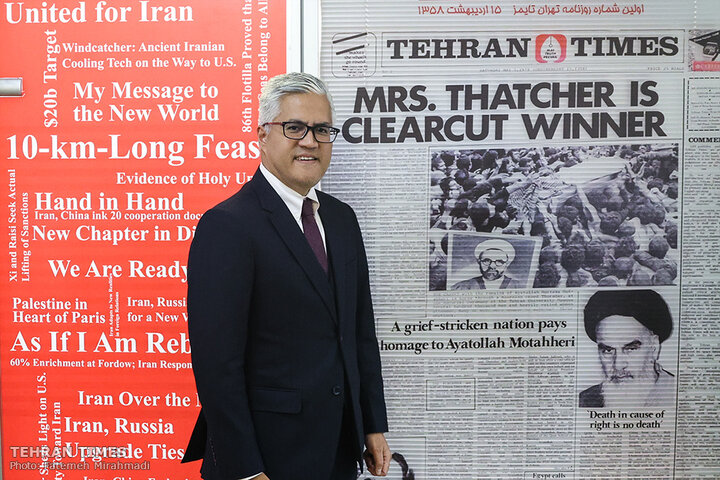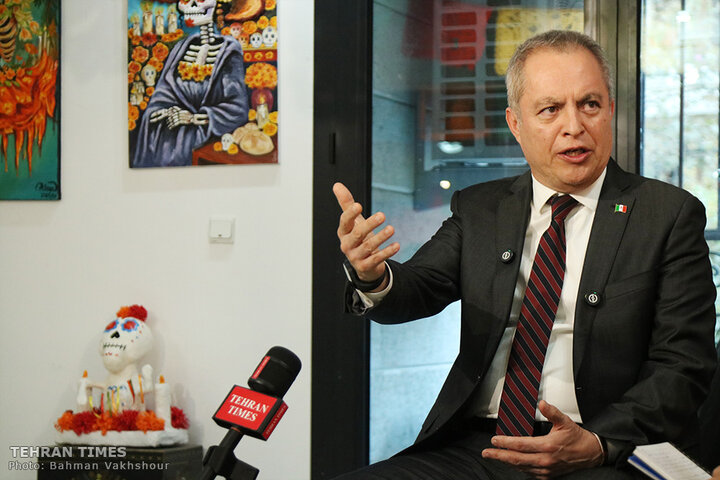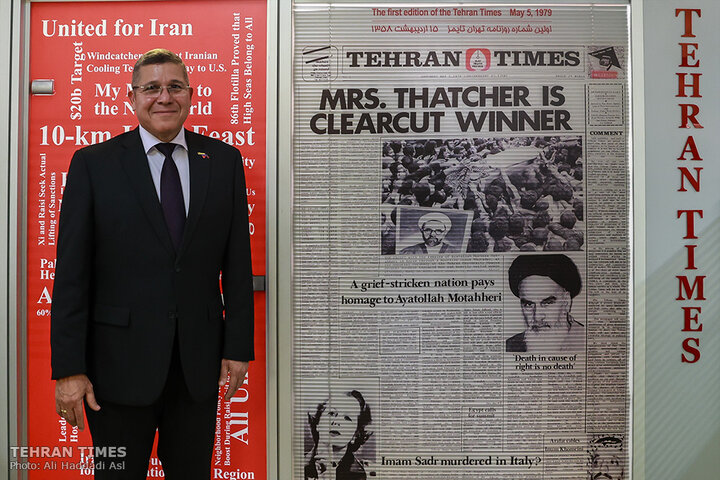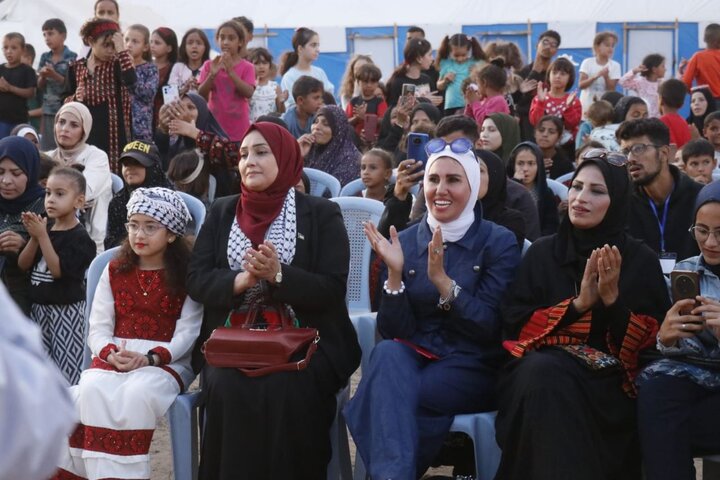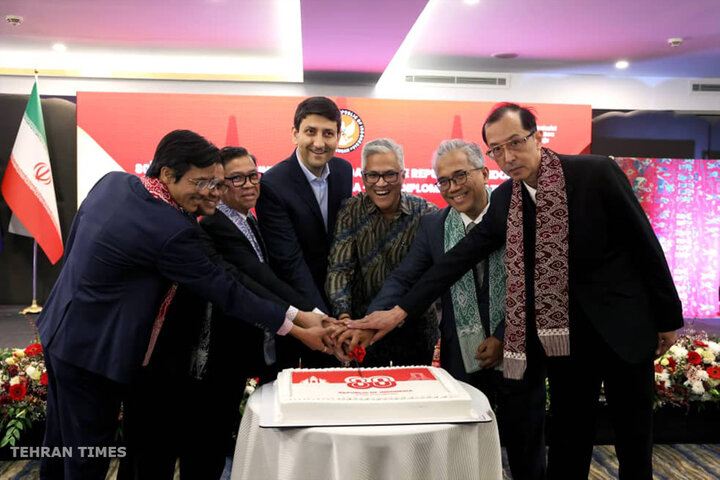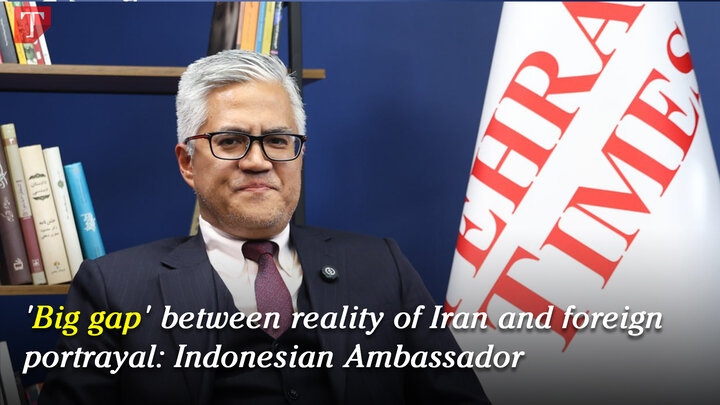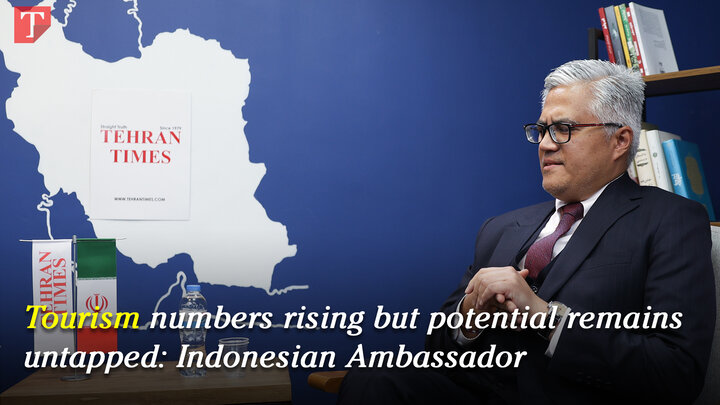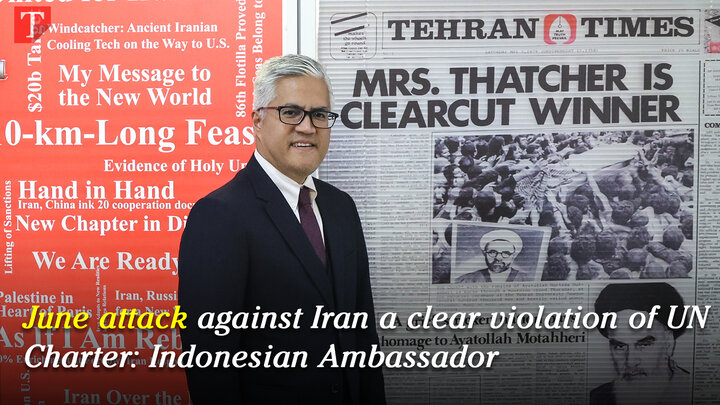-
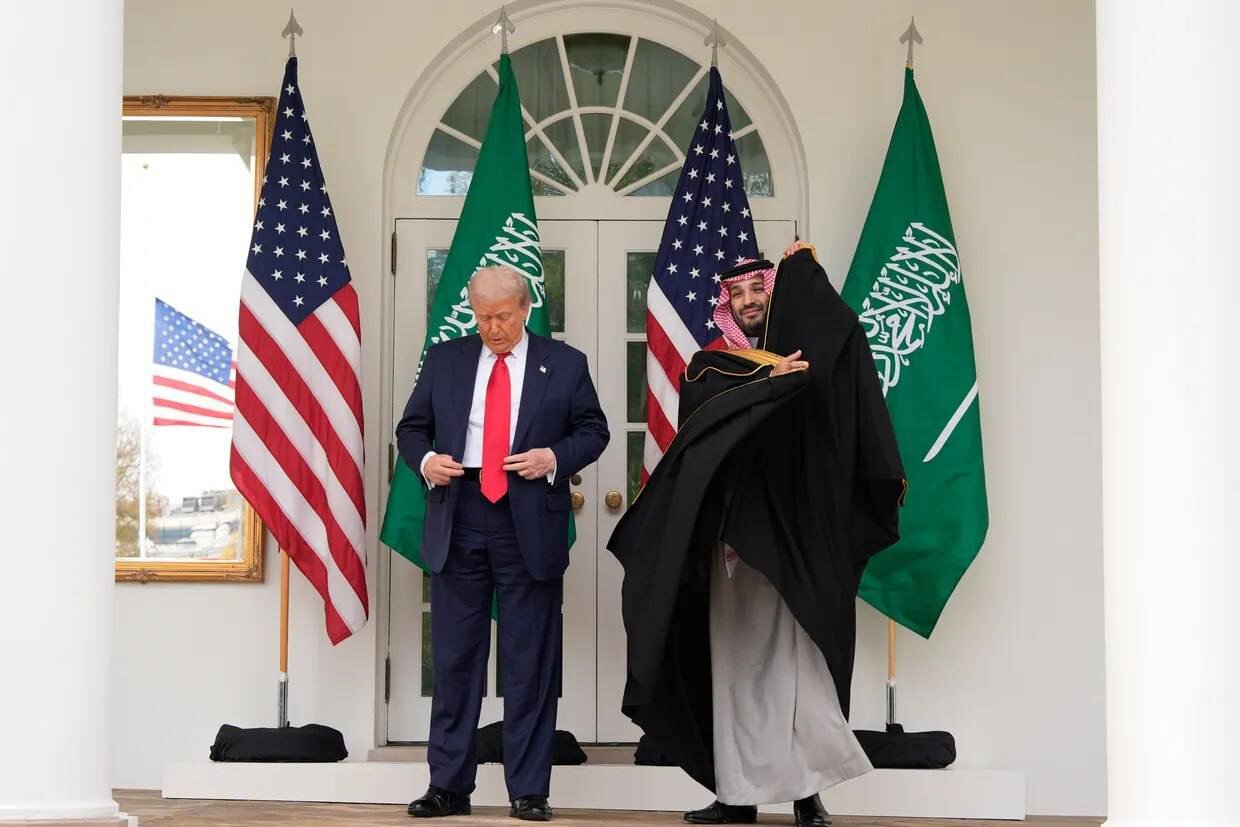 2025-11-19 22:20
2025-11-19 22:20
By Soheila Zarfam
Why is Trump lying about talks with Iran?
TEHRAN – While speaking to reporters during his Oval Office meeting with Saudi Crown Prince Mohammed bin Salman, U.S. President Donald Trump told one lie and one half-truth about Iran. The lie was egregious, and the partial truth carried little persuasive weight.
-
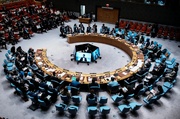
By Sahar Dadjoo
International law has collapsed under great-power pressure, UN observer warns
Thomas G. Weiss says geopolitical paralysis has left the UN unable to restrain U.S.-Israel actions against Iran
TEHRAN – The recent 12-day U.S.-Israel assault on Iran has reignited debates about whether the global legal system retains any real authority or has collapsed under the weight of great-power politics. For Thomas G. Weiss, a leading thinker on international governance and long-time observer of the UN, the crisis is symptomatic of a much deeper breakdown.
-
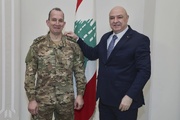
By Sondoss Al Asaad
Washington pressuring Lebanon’s president and army
BEIRUT — Lebanon is grappling with an unprecedented political and diplomatic offensive targeting its highest institutions: the presidency and the army.
-
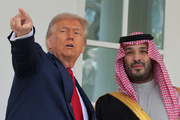
By staff writer
The strategic loom: Weaving Saudi Arabia into a U.S.-Israel framework
TEHRAN – The Tuesday meeting at the White House between U.S. President Donald Trump and Saudi Crown Prince Mohammed bin Salman was less about ceremony than about strategy.
-
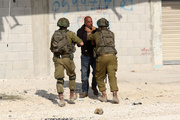
By Wesam Bahrani
West Bank aggression fuels annexation fears
TEHRAN – Escalating violence and sweeping crackdowns across the West Bank intensify concerns over mounting Zionist territorial control.
-
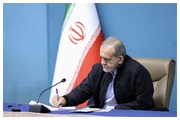
Implementation begins for Iran’s new law supporting citizens abroad
TEHRAN – Iran has begun implementing a newly approved law designed to strengthen support for Iranians living overseas, after the president formally communicated the legislation to all relevant ministries and national institutions.
Politics
-
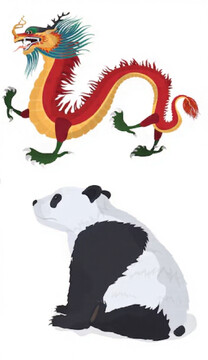
Panda or dragon? China’s strategy amid UN sanctions on Iran
TEHRAN- The snapback of pre-JCPOA UN sanctions against Iran have created a complex and delicate balancing act for China.
-
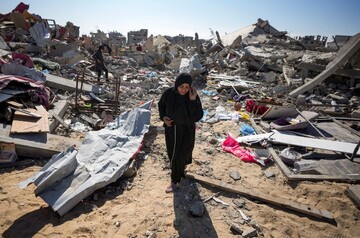
Tehran condemns UN Gaza resolution over violation of Palestinian rights
TEHRAN – Iran has expressed serious concern over the provisions of UN Security Council Resolution 2803 on Gaza, saying a major part of the resolution’s text runs counter to the legitimate rights of Palestinian people.
-
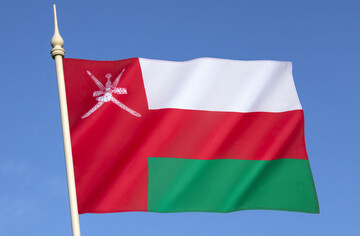
Oman marks National Day with celebration of stability and distinct national identity
Each year on this day, the Sultanate of Oman pauses before a sweeping historical canvas, commemorating the founding of the Al Bu Said state 281 years ago — the state that laid the foundations of a stable, prosperous, and regionally influential nation.
Sports
-
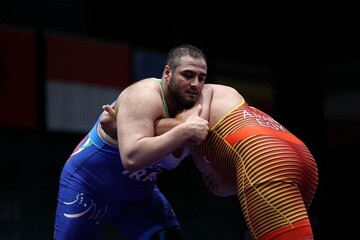
Iran Greco-Roman wrestlers win two golds: 2025 Riyadh
TEHRAN – Iranian Greco-Roman wrestlers Mohammadhadi Sarvai and Fardin Hedayati won two gold medals at the 2025 Islamic Solidarity Games (ISG) on Wednesday.
-
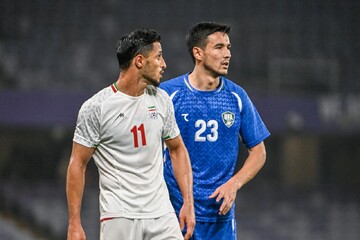
Iran’s performance in Al Ain raises broader concerns
TEHRAN - Iran football national team’s runners-up finish at the Al Ain International Cup, sealed by a 4–3 penalty defeat to Uzbekistan after a goalless draw, is not a crisis in isolation. Friendly tournaments are designed for experimentation, squad rotation, and tactical testing. Yet the reaction surrounding Team Melli’s latest performances, both on and off the pitch, has intensified concerns among supporters and analysts who believe the national team should display a clearer sense of progress and readiness ahead of a challenging 2026 World Cup.
-

Saeid Ezatolahi sidelined for two months
TEHRAN – Iran national football team midfielder Saeid Ezatollahi faced a challenging setback in a recent match against Uzbekistan.
Culture
-
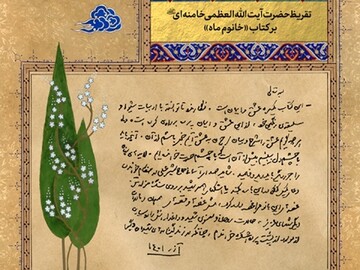
Leader’s commendation for “Lady Moon” unveiled in Shiraz
TEHRAN- On Wednesday, in tandem with Iran’s Book Week, the unveiling ceremony of the Leader of the Islamic Revolution, Ayatollah Seyyed Ali Khamenei’s commendation for the book "Lady Moon" was held at Vahdat Hall in Shiraz.
-
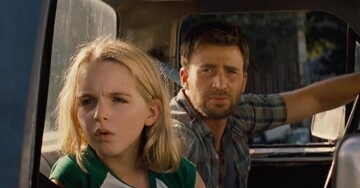
Tehran cultural center screens “Gifted”
TEHRAN- “Gifted”, a 2017 drama film by American filmmaker Marc Webb, went on screen at the Arasbaran Cultural Center in Tehran on Wednesday.
-

Resistance Theater Festival launches Nations section to promote global collaboration
TEHRAN- The 20th International Resistance Theater Festival has introduced a new section named Nations for its upcoming edition.
Economy
-
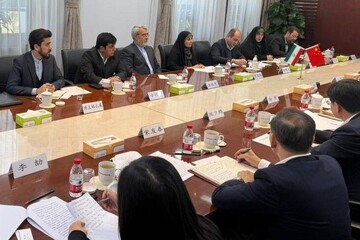
Tehran, Beijing outline housing cooperation roadmap ahead of planned MOU
TEHRAN – Iran’s Transport and Urban Development Ministry said officials from Tehran and Beijing have begun drafting a housing and construction cooperation roadmap that is expected to form the basis of a bilateral memorandum of understanding (MOU) to be signed during the Iranian president’s upcoming visit to China.
-
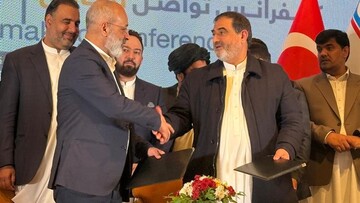
Iran expands economic ties with Afghanistan with new trade, mining, energy initiatives
TEHRAN – Senior representatives from Iran’s Chamber of Commerce, Industries, Mines and Agriculture (ICCIMA) and multiple Afghan economic bodies signed a series of cooperation agreements during a high-level visit to Kabul and the Imam Abu Hanifa International Exhibition, signaling a broad effort to expand trade, investment and technical collaboration across mining, agriculture, energy and healthcare.
-
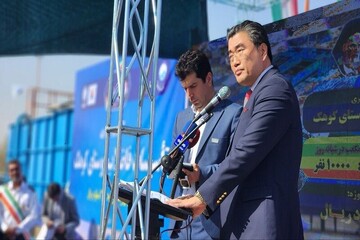
Kohak project an example of effective co-op between S. Korea, Iran: South Korean ambassador
TEHRAN- South Korean Ambassador to Iran, Kim Junpyo, emphasized the continuation of cooperation with Iran in environmental and social projects, and stated that the implementation of the "Kohak" rural wastewater project in Sistan-Baluchestan province is a successful example of effective and friendly cooperation between South Korea and Iran.
Society
-
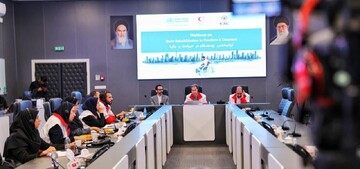
IRCS, ICRC hold webinar on early rehabilitation
TEHRAN – The Iranian Red Crescent Society (IRCS) and the International Committee for the Red Cross (ICRC) have hosted a webinar on ‘Early Rehabilitation in Conflicts and Disasters’.
-
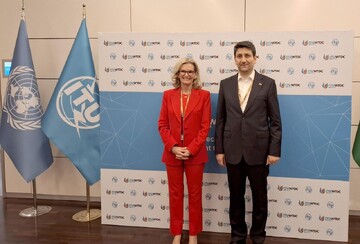
Iran, ITU to expand co-op on AI, communication infrastructure
TEHRAN – The Information and Communication Technology (ICT) Minister, Sattar Hashemi, and the Secretary-General of the International Telecommunication Union (ITU), Doreen Bogdan-Martin, have discussed ways to promote collaborations in different fields, including artificial intelligence (AI), communication infrastructure, digital multilateralism, and communication security.
-

Iran to attend CITES COP20
TEHRAN – Iran will participate in the twentieth meeting of the Conference of the Parties to the Convention on International Trade in Endangered Species of Wild Fauna and Flora (CITES COP20), which is scheduled to be held from November 24 to December 5 in Samarkand, Uzbekistan.
Tourism
-
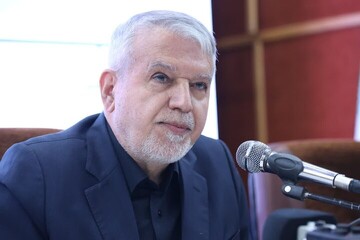
4.5 million tourists visit Iran in six months, minister says
TEHRAN—Close to 4.5 million tourists from target countries visited Iran during the first half of current Iranian year (March-September 2025), said Minister of Cultural Heritage, Tourism, and Handicrafts Reza Salehi-Amiri.
-
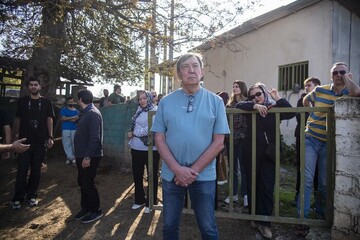
Mazandaran hosts Caspian tour operators and influencers to promote Iran’s image
TEHRAN – Tourism officials in Mazandaran province hosted tour operators and social media influencers from Russia, Kazakhstan and Turkmenistan this week as part of a program aimed at promoting Iran’s image and showcasing the region’s tourism capacity.
-
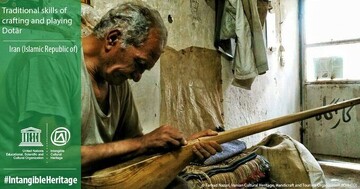
Deputy minister says Shirvan seeking national designation for Dotar making
TEHRAN – Iran’s deputy minister for handicrafts said on Tuesday that authorities are working to register the northeastern city of Shirvan as the country’s national hub for Dotar making during a visit to local artisans in the city located in North Khorasan province.
International
-

Washington pressuring Lebanon’s president and army
BEIRUT — Lebanon is grappling with an unprecedented political and diplomatic offensive targeting its highest institutions: the presidency and the army.
-

The strategic loom: Weaving Saudi Arabia into a U.S.-Israel framework
TEHRAN – The Tuesday meeting at the White House between U.S. President Donald Trump and Saudi Crown Prince Mohammed bin Salman was less about ceremony than about strategy.
-

West Bank aggression fuels annexation fears
TEHRAN – Escalating violence and sweeping crackdowns across the West Bank intensify concerns over mounting Zionist territorial control.
Video Comment
-
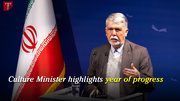
Culture minister highlights year of progress in arts, global image enhancement
-
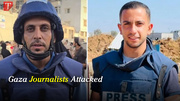
Gazan Journalists attacked by Israel
-
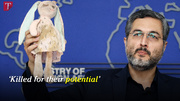
Brother of Iranian scientist murdered in Israeli strike speaks out
-
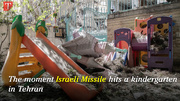
Footage shows Israel hit a kindergarten in Tehran
-
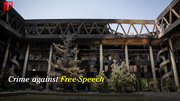
Delegates and ambassadors from 28 countries visited the IRIB building
Most Viewed
-
Why is Trump lying about talks with Iran?
-
A Trojan Horse for Gaza
-
New report exposes U.S. atrocities in Iraq during occupation
-
Iran positions itself as central bridge for China–Europe rail corridor
-
June attack against Iran a clear violation of UN Charter, Indonesian envoy tells Tehran Times
-
Hezbollah will counter financial stranglehold amid hybrid war
-
China's Fujian and USS Gerald R Ford: Stability vs. coercion on the high seas
-
SCO and BRICS provide opportunity to neutralize sanctions
-
Panda or dragon? China’s strategy amid UN sanctions on Iran
-
Diplomacy and culture meet at Tehran bazaar
-
At Moscow summit, SCO slams ‘illegal’ Western sanctions on Iran
-
Iran deepens scientific ties with China through new ocean research pact
-
Minister calls Caspian regional meeting a new phase of cooperation, highlights cultural capacity
-
Iran eyes stronger foothold in Iraqi market with $20b trade goal
-
The strategic loom: Weaving Saudi Arabia into a U.S.-Israel framework
